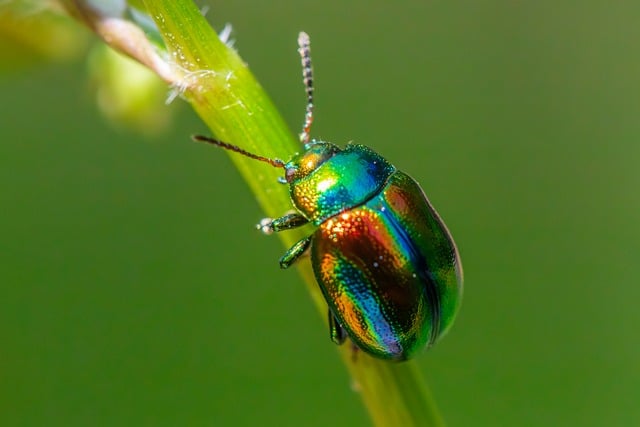Homeowners in Littleton can effectively manage garden pests using organic solutions that align with seasonal patterns. By understanding pest activity throughout the year, they can implement beneficial insect releases, natural repellents, and plant-based pesticides at optimal times. This holistic approach promotes soil health, diverse plant life, and habitats for natural predators, fostering a sustainable ecosystem while safeguarding children and pets from harsh chemicals. Regular monitoring, companion planting, and proper hygiene further enhance the effectiveness of organic pest control strategies.
In Littleton, organic pest control for home gardens is a growing trend among eco-conscious residents. Understanding seasonal pest patterns is key to effective management. This article delves into the intricate dance between pests and plants throughout the year, offering insights on identifying and mitigating common garden pests naturally. We explore organic solutions and practical tips for implementing seasonal strategies, empowering homeowners with sustainable tools to maintain thriving gardens free from harmful chemicals.
- Understanding Seasonal Pest Patterns in Home Gardens
- Organic Solutions for Effective Pest Control
- Practical Tips for Implementing Seasonal Management Strategies
Understanding Seasonal Pest Patterns in Home Gardens

Understanding seasonal pest patterns is a crucial step in implementing effective organic pest control for home gardens in Littleton. Different pests thrive at various times of the year due to changing environmental conditions, such as temperature and humidity. By knowing when specific pests are most active, homeowners can better prepare and take proactive measures. For instance, spring and early summer often bring aphids, whiteflies, and spider mites, while late summer and fall may see an increase in ants, termites, and rodents.
Recognizing these patterns allows for the timing of organic treatments to be more precise. Organic pest control methods, such as using beneficial insects, natural repellents, and plant-based pesticides, are particularly effective when applied at the right time. Homeowners can also enhance their garden’s resilience by promoting healthy soil, diversifying plant species, and providing habitats for natural predators, which collectively contribute to a more sustainable and eco-friendly approach to pest management.
Organic Solutions for Effective Pest Control

In the quest for effective yet eco-friendly pest management, organic solutions offer a promising alternative for homeowners in Littleton aiming to keep their garden thriving. Instead of relying on synthetic chemicals, adopting organic methods not only promotes a healthier environment but also provides a sustainable approach to pest control. One of the key benefits is its safety; these natural remedies are less toxic, ensuring that children and pets remain unharmed while enjoying the garden.
For organic pest control for home gardens in Littleton, homeowners can explore various options like using beneficial insects such as ladybugs and lacewings to combat pests naturally. Additionally, introducing plants with pest-repelling properties can act as a biological barrier against common invaders. Organic solutions are not just about repellents; they also include natural pesticides derived from ingredients like neem oil and soap, which are effective in eliminating target pests without leaving harmful residues.
Practical Tips for Implementing Seasonal Management Strategies

Implementing seasonal management strategies for organic pest control in your Littleton home garden is a proactive approach to maintaining a healthy and thriving space. Start by identifying common pests that are prevalent during each season, such as aphids in spring or spider mites in summer. This knowledge will guide your selection of natural predators and organic treatments specific to those pests. Regular monitoring is key; inspect plants weekly for any signs of infestation, taking note of changes in leaf appearance or behavior.
Next, consider planting companion plants that naturally repel pests. Marigolds, for example, are known to deter nematodes, while lavender repels mosquitoes and other insects. Diversifying your garden with these natural allies can significantly reduce the need for chemical interventions. Additionally, maintaining proper hygiene by removing dead plant matter and cleaning up fallen leaves creates an environment less favorable to pest breeding.
In the ever-changing seasons of Littleton, organic pest control for home gardens is not just an option, but a responsible and effective approach. By understanding seasonal pest patterns and implementing practical management strategies, you can maintain a thriving garden free from harmful chemicals. Organic solutions provide a safe, sustainable way to protect your plants and ensure a healthy environment for both you and local ecosystems. Embrace these seasonal practices for optimal pest prevention and enjoy the beauty of your Littleton garden all year round.
